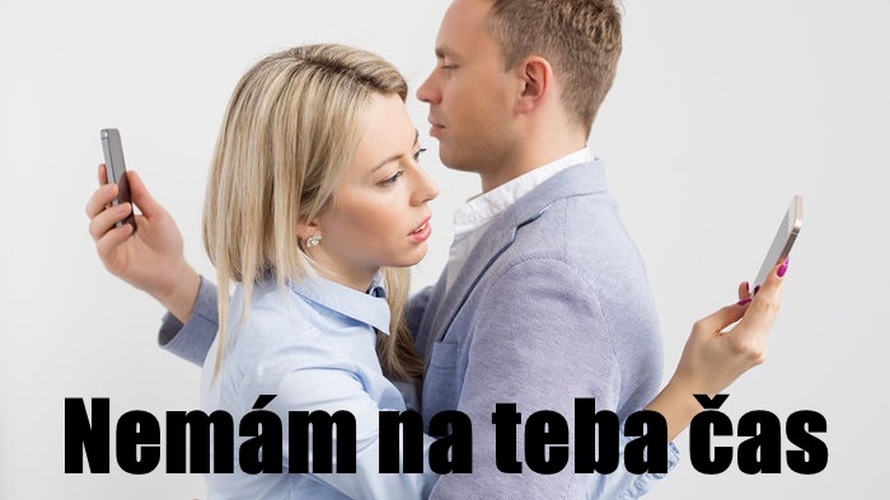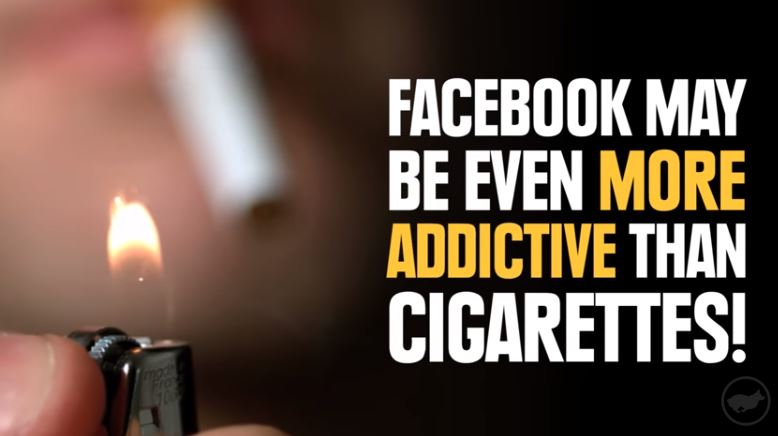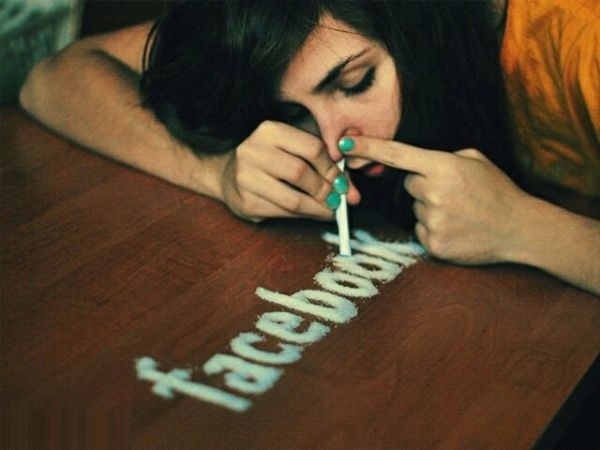
.
10 signálov závislosti na Facebooku
Zmazať FACEBOOK? Prečo by ste mali prestať používať Facebook ? Vaše súkromné dáta sú môžu byť prístupné. Používanie facebooku môže byť viac závislé, než fajčenie. A čo je ďalej oveľa horšie. Závislí uživatelia Facebooku môžu mať väčší sklon k depresií a sebevražebným myšlienkam. Zvyšuje to osamelosť a izoláciu, odvádza od reality. Facebook umožní mať tisíce " priateľov", s ktorými se možno nikdy nestretnú, ale zveria i aj skryté myšlienky a hľadají u ních oporu. Sme plne chránený? Nie. Áno facebook je ako diabol. Bojím sa o naše deti.
Možno si poviete, mňa sa to netýka ja facebook navštevujem občas. Koľko hodin tráviš na PC ? Čas je vzácny ten čas mohol venovať rodine a iným užitočnejším veciam. Teda netýka sa to len premárneného času na facebooku ale aj súkromia. Sociálna sieť Facebook využila 700 tisíc užívateľov k rozsiahlemu psychologickému experimentu, bez toho aby o tom niekto z nich vedel a dal k tomu súhlas.
Čas je vzácny ! Čas je vzácny ! Ak nie si pripravený zomrieť dnes, boj sa, že zomrieš zle.
Uvedom si, že uplynulý čas ti už a budúci ešte nepatrí. Na konanie dobra si dostal prítomnosť. Svätý Alfonz Mária de' Liguori: učiteľ Cirkvi.
Viac tu: čas je vzácny
Znepokojenie a otázky o ochrany súkromia. Štyria senátori služby Facebook zaslala "znepokojenie", varuje sociálnu sieť, a mala by mala vyšetrovať spoločnosť. Senátori Charles Schumer, Michael Bennett, Al Franken a Mark Begich - druhý člen podvýboru - zaslalo list vyjadrujúci znepokojenie osob. súkromia.
10 signálov závislosti na Facebooku
Zmazať FACEBOOK? Prečo by ste mali prestať používať Facebook ? Vaše súkromné dáta sú môžu byť prístupné. Používanie facebooku môže byť viac závislé, než fajčenie. A čo je ďalej oveľa horšie. Závislí uživatelia Facebooku môžu mať väčší sklon k depresií a sebevražebným myšlienkam. Zvyšuje to osamelosť a izoláciu, odvádza od reality. Facebook umožní mať tisíce " priateľov", s ktorými se možno nikdy nestretnú, ale zveria i aj skryté myšlienky a hľadají u ních oporu. Sme plne chránený? Nie. Áno facebook je ako diabol. Bojím sa o naše deti.
Možno si poviete, mňa sa to netýka ja facebook navštevujem občas. Koľko hodin tráviš na PC ? Čas je vzácny ten čas mohol venovať rodine a iným užitočnejším veciam. Teda netýka sa to len premárneného času na facebooku ale aj súkromia. Sociálna sieť Facebook využila 700 tisíc užívateľov k rozsiahlemu psychologickému experimentu, bez toho aby o tom niekto z nich vedel a dal k tomu súhlas.
Čas je vzácny ! Čas je vzácny ! Ak nie si pripravený zomrieť dnes, boj sa, že zomrieš zle.
Uvedom si, že uplynulý čas ti už a budúci ešte nepatrí. Na konanie dobra si dostal prítomnosť. Svätý Alfonz Mária de' Liguori: učiteľ Cirkvi.
Viac tu: čas je vzácny
Znepokojenie a otázky o ochrany súkromia. Štyria senátori služby Facebook zaslala "znepokojenie", varuje sociálnu sieť, a mala by mala vyšetrovať spoločnosť. Senátori Charles Schumer, Michael Bennett, Al Franken a Mark Begich - druhý člen podvýboru - zaslalo list vyjadrujúci znepokojenie osob. súkromia.
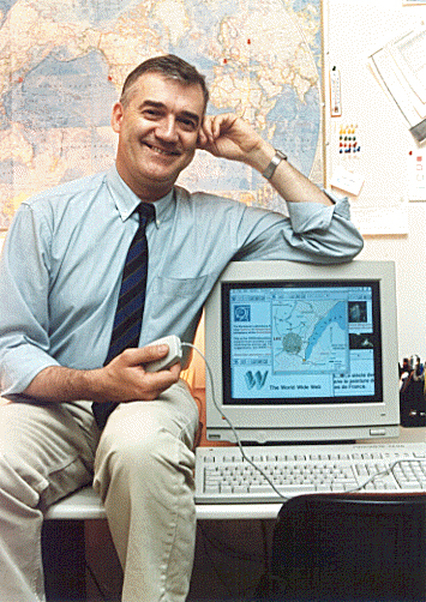
Čo hovorí vynálezca World Wide o facebooku ?
Robert Cailliau, vyvinul World Wide Web pred 20 rokmi, nedávno uviedol vo videu, prečo nie je na Facebooku:
Povedal: "Môžem sa dostať dovnútra, ale nemôžem sa dostať von.
Neviem, čo sa stane s mojimi dátami a môjho súkromia.
Facebook vystavuje nás i svoje deti, k oplzlosti.
Kto bude chrániť naše deti pred škodcom, keď nevieme seba? Začíname vidieť nenápadné morálne zrútenie hodnôt človeka o čom svedčí nárast trestných činov spáchaných mladistvými, a psychyckých porúch. Kto bude chrániť deti?

Facebook nás odpojí od reálneho sveta
Prečo facebook chce spojiť toľko ľudí ? Nechce nás Facebook skôr odpojiť od seba a od Boha ? Facebook manipuluje s emóciami ľudí.
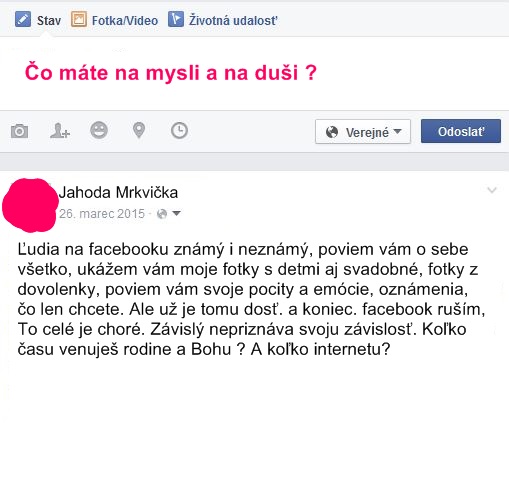
Sociálna sieť Facebook využila asi 700 tisíc užívateľov k rozsiahlemu psychologickému experimentu, bez toho aby o tom niekto z nich vedel a dal k tomu súhlas.
Aby Facebook zistil, ako používatelia facebooku reagujú na pozitívne a negatívne informácie na sociálnych sieťach, filtroval totiž obsah tzv. NEWSFEED.
Niektorým ľuďom tak zobrazoval viac pozitívnych, iným naopak viac negatívnych príspevkov, "píše spravodajský server ihneď.
Táto aktivita Facebooku rozhorčila britského labouristického poslanca Jima Sheridana, ktorý požaduje prešetrenie celého prípadu. Žiada, aby legislatíva podobné veci upravovala. Čo ma ale zaskočilo najviac, je Sheridan obava z toho, na čo sa Facebook odhodlá nabudúce. "Facebook manipuluje s emóciami ľudí. Bojím sa, aby nezačal manipulovať aj ich politické zmýšľanie, "uviedol Sheridan.
Robí si snáď žart? To hovorí politik a ešte k tomu labouristami? Politici manipulujú politické zmýšľanie ľudí prostredníctvom verejných škôl a verejnoprávnych médií, nad ktorými, nech nám kto chce, čo chce tvrdia o ich nezávislosti, majú kontrolu. Politici stoja za jednostrannými marketingovými kampaňami, ktoré majú zmanipulovať občanov, aby hlasovali v referende presne podľa želania politických elít. Politici k tejto manipulácii využívajú verejných peňazí. Vo chvíli, keď sa objaví nepatrný náznak, že nástroj k podobnej manipuláciu má aj súkromná spoločnosť, ktorá by všetko financovala z vlastných zdrojov, vyskakuje politik ako čertík z krabičky a volá po zákazoch. neskutočné
Aj exorcista Cesar Truqui varuje : Existuje diabol špecializovaný ktorý rozbíja rodiny a dobré ľudské vzťahy. Exorcista tvrdí, že diabol k oslabovaniu viery využíva aj ideológie a technológie: „Najmocnejším nástrojom je internet. (...) Človek v samote pred svojím počítačom má prístup ku všetkému bez kontroly a obmedzení.“ Duchovná prázdnota spôsobuje, že ľudia hľadajú odpovede na svoje otázky u mágov, čarodejníkov, veštcov či v ezoterických rituáloch. Veštci a ezoterici sú nebezpečnejší ako drogy, tvrdí exorcista Cesar Truqui. A hovorí že treba pokušeniam diabla predchádzať sviatosťami eucharistie a sv. spovede, každodennou modlitbou a ružencom. Vatikánsky rozhlas
Viac tu: http://jezismaria1.webnode.sk
Viac tu: Ako diabol, ktorý rozbíja manželstva
V štúdii na sociálnej psychológie konferencii minulý mesiac, vedci predstavili svoje závery: Facebook užívatelia s priateľmi 354 a viac, ktorí čítajú aktualizácie stavu svojich priateľov hodnotí svoj život za oveľa menej uspokojivý ako tí, ktorí ho nemajú.
V rovnako SPSP, University of Houston vedci zistili, že čas strávený na Facebooku má príznaky k depresií. Inými slovami, ľudia s depresiou pocitmi trávia oveľa viac času na Facebooku, a čas strávený na Facebooku častokrát strávili ako so svojimi priateľmi. University of Haifa štúdia zistila, že čím je viac času strávený na Facebooku, tým väčšia je pravdepodobnosť, že trpíte "bulímiou, anorexiou, nespokojnosť, self-imagem, negatívneho prístupu k jedlu atd.* A nakoniec čo to znamená pre kresťana?
Kresťana to odvádza od modlitby a Božej prítomnosti. Panna Mária preto hovorí:
Hľa, čo vám poviem: satan sa zahráva s vami a s vašimi dušami. A ja vám nemôžem pomôcť, lebo ste ďaleko od môjho srdca.
Milé deti, pri pohľade na vás mi srdce zviera bolesťou. kam kráčate deti moje? Keď ste v ťažkostiach, keď ste unavený a chorí, a keď nevidíte zmysel vašho života, vezmite si ruženec a modlite sa, modlite sa až kým sa vám modlitba nestane radostným stretnutím s vašim Spasiteľom. Modlitba robí zázraky.
Milé deti, Vari ste až natoľko uviazli v hriechu, že sa neviete zastaviť? Ospravedlňujete sa hriechom a podľa hriechu žijete. Pokľaknite pod kríž a pohliadnite na môjho Syna. On premohol hriech a zomrel, aby ste vy, deti moje, mohli žiť. Dovoľte mi, aby som vám pomohla nezomrieť ale naveky žiť s mojím Synom. Žiadam od vás, aby ste sa úprimne pozreli do svojich sŕdc Myslite na dušu, pretože ona je dôležitejšia ako telo, očistite ju. Volajte k Otcovi, On vás čaká, vráťte sa k nemu. Ja som s vami, pretože ma On vo svojej milosti posiela.
Viac tu: http://www.medjugorje.ws
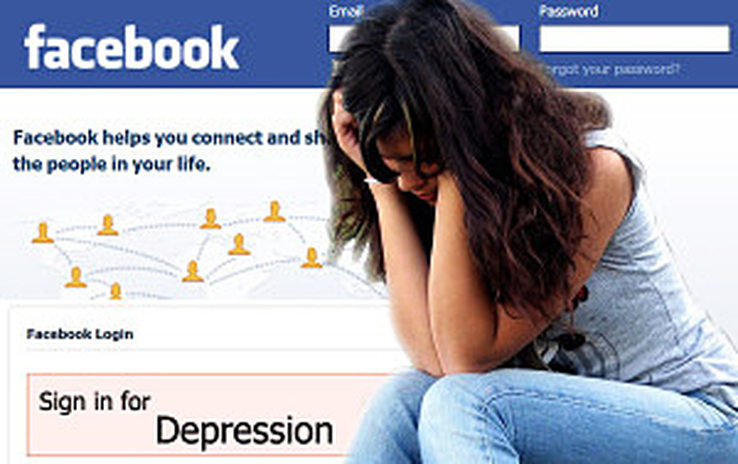
1 z 3 manželských rozvodov má na svedomí Facebook
Od samého začiatku existencie Facebooku, existujú otázky týkajúce sa etiky Zuckerberg sa. Podľa BusinessInsider.com, použil užívateľských dát Facebook môže uhádnuť e-mailové heslá a čítanie osobných e-mailov s cieľom zdiskreditovať jeho súpera. Tieto obvinenia majú zvýšiť znepokojujúce otázky týkajúce sa etiky CEO najväčšej svetovej sociálnej siete. Twitter to urobila trochu rafinovanejšie o ochrane osobných údajov ich zákazníci vedia dopredu, že všetky ich tweety sú verejné.
1 z 3 manželských rozvodov má na svedomí Facebook
Od samého začiatku existencie Facebooku, existujú otázky týkajúce sa etiky Zuckerberg sa. Podľa BusinessInsider.com, použil užívateľských dát Facebook môže uhádnuť e-mailové heslá a čítanie osobných e-mailov s cieľom zdiskreditovať jeho súpera. Tieto obvinenia majú zvýšiť znepokojujúce otázky týkajúce sa etiky CEO najväčšej svetovej sociálnej siete. Twitter to urobila trochu rafinovanejšie o ochrane osobných údajov ich zákazníci vedia dopredu, že všetky ich tweety sú verejné.
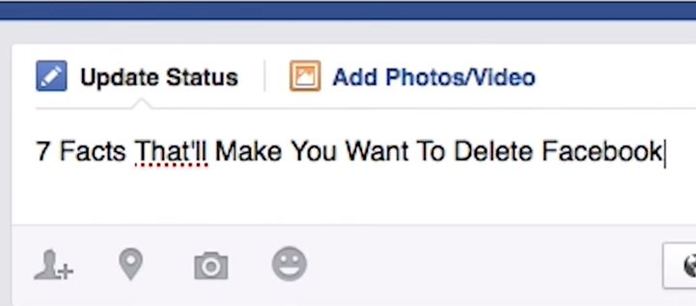
Facebook neuveriteľne ťažké zmazať svoj účet je dosť zložité naozaj skutočne zmazať svoj účet . Robia sľuby o odstránenie dát a každá z aplikácii, ktorú ste používali si môžu ponechať. Keď idete do nastavenia účtu, budete daná možnosť deaktivovať svoj účet, ale nie je to isté ako jeho odstránenie.
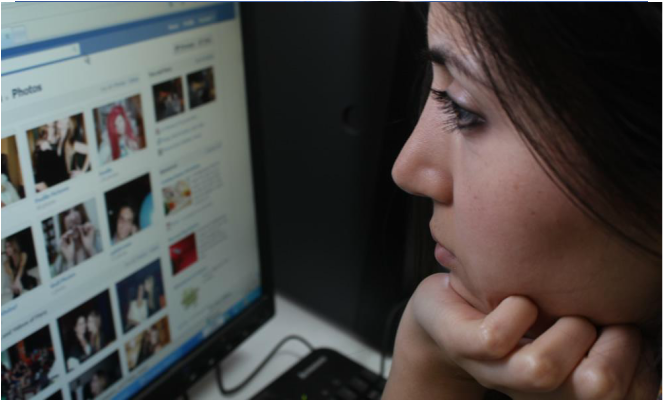
Deaktivácia znamená, že môžete ešte byť označení na fotografiách a nevyžiadanou poštou pomocou Facebooku. pretože si myslíte, že máte zmazaní účet. A konečne, v okamihu, keď sa znova prihlásite, znova ste späť, ako by sa nič nestalo!
Zjednodušene povedané, Facebook sa snaží prinútiť svojich užívateľov zachovať svoje dáta aj potom, čo "zmažete" svoj účet.
Alebo stačí kliknúť sem
: http://www.businessinsider.com/10-reasons-to-delete-your-facebook
Video - facebook may be even more addictive than cigarettes
https://www.youtube.com/watch?v=N8ewMAU79Y4
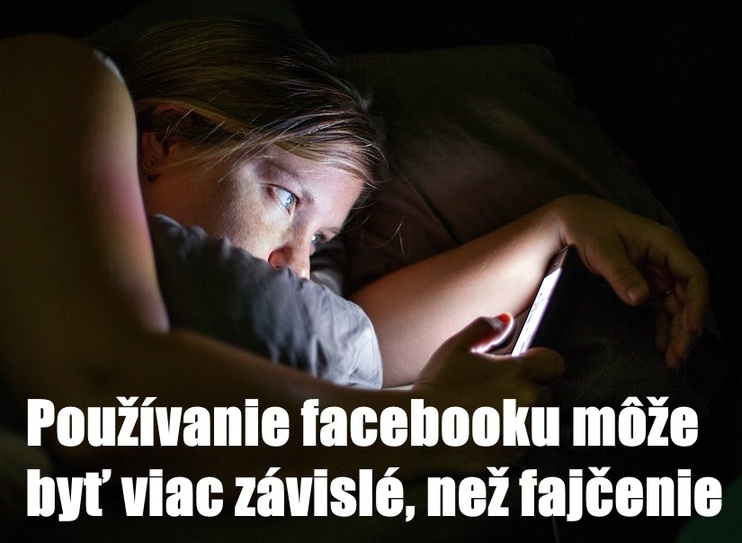
Internet sa stal nebezpečným miestom
ľudia zdieľajú všetky svoje osobné údaje naTwitter, Facebook, MySpace a ďalších sociálnych sietí webových stránok; tieto stránky sú vlastnené a prevádzkované iluminátmi, chamtivosťou a úkor bezpečnosti osob. údajov a zlými mravmi, majú za cieľ získať jednotnú svetovládu. Ilumináti. Jednou z mnohých spôsobov ako pôsobiť sú soc. siete facebook. http://www.christ-net.sk/node/1497
Ilumináti: Táto satanská organizácia ktorá je aj v najvyšších kruhoch politiky urobí všetko, aby túto svetovládu aj získala, a táto skupina sa volá Ilumináti. / Slobodomurári.
Lebo sú to práve oni, ktorí chcú poštvať ľudí proti Cirkvi a presunúť bremeno svojich nechutností na ňu. Ľudovo sa tomu hovorí "Zlodej kričí, chyťte zlodeja". Nevedomosť, nevzdelanosť a hlúposť sú základnými podmienkami ako rôznymi polopravdami vymývať ľuďom mozog a štvať proti Katolíckej cirkvi.
Majiteľ miliardár z FACEBOOK dokonca volal jeho užívateľov hlúpych pre zadávanie svojích osobných údajov.
YouTube sa rýchlo stála žumpa pornografie a oplzlosti. Láka ľudí zo všetkých oblastí života, vrátane veriacich, YouTube sa stáva peklom a ja by som nechcel byť v ich koži v súdny deň vo večnosti.

Trpíte neustálou touhou něco komentovat?
Člověk se uchyluje do virtuálního světa proto, že v tom reálném není spokojen.
Nebo to aspoň lajknout? Budíte se uprostřed noci, protože jste zapomněli zalít zahrádku ve FarmVille?
Jste schopni rozlišovat jen mezi Líbí se mi versus Nelíbí se mi? Tak rychle nasdílejte tenhle článek a zkuste diagnostikovat, jestli náhodou nejste závislí na Facebooku.
1. Nekonečno
Nejpodstatnějším symptomem je samozřejmě čas. Věřte, že za víc jak půlhodinky denně Facebook nestojí a pokud vám přijde, že ano, je něco špatně.
2. Kdekoliv a kdykoliv
Jakmile máte chvilku, čekujete síť. Na návštěvě, u doktora a na rande. To je putna. Co kdyby se náhodou něco změnilo, že jo.
hýbáte. Ostatně máte dost vlastních opravdových facebookových přátel, že ano!
Trpíte neustálou touhou něco komentovat?
Člověk se uchyluje do virtuálního světa proto, že v tom reálném není spokojen.
Nebo to aspoň lajknout? Budíte se uprostřed noci, protože jste zapomněli zalít zahrádku ve FarmVille?
Jste schopni rozlišovat jen mezi Líbí se mi versus Nelíbí se mi? Tak rychle nasdílejte tenhle článek a zkuste diagnostikovat, jestli náhodou nejste závislí na Facebooku.
1. Nekonečno
Nejpodstatnějším symptomem je samozřejmě čas. Věřte, že za víc jak půlhodinky denně Facebook nestojí a pokud vám přijde, že ano, je něco špatně.
2. Kdekoliv a kdykoliv
Jakmile máte chvilku, čekujete síť. Na návštěvě, u doktora a na rande. To je putna. Co kdyby se náhodou něco změnilo, že jo.
hýbáte. Ostatně máte dost vlastních opravdových facebookových přátel, že ano!

3. Čím víc lajků, tím víc adidas
Vaše nálada je přímo úměrná počtu lajků, komentů a sdílení vašich příspěvků. Málo palců nahoru dovede zkazit celý den, protože se cítíte tak nezajímaví, nemilovaní, nelajkovaní...
4. Ne-přátelé
Totálně vás deptá, když si vás někdo ne a ne přidat do přátel. Ovšem opravdá tragédieje, když si někdo dovolí vás z přátel odebrat! Kdyby tak šlo mu virtuálně naplivat nakliku od baráku.
5. Sociální paranoia
Neodpověděl vám na zprávu. Něco se děje. Asi se naštval. Možná je mrtvej. Bože. Přesně tak, bože. To že někdo není hodinu, dvě, nebo celý odpoledne na Facebooku nic, ale vůbec nic neznamená.
6. Profilofil
Když berete do ruky foťák, je to vždycky s tím, že fotečky obratem půjdou na Facebook. Lidem lezete před objektiv zásadně s našpulenou pusou, protože by z toho mohla kápnout dobrá profilovka, a taky vám nepřijde divné tahat kámoše do koupelny jen proto, aby vás vyblejskli ve spodním prádle.
7. Narozeniny
Životní jubilea ostatních berete na vědomí, jen když vám to Facebook připomene. Na svoje vlastní narozky se od počítače prakticky nehnete a co dvě minuty refreshujete zeď, abyste s uspokojením kontrolovali, kolik lidí vám už poslalo virtuální dortík, srdíčko, pusinkovacího smajlíka nebo podobnou hovadinu.
8. Nefejsbukáři
Nechápete, jak je možné, že někdo, kdo nemá profil na Facebooku, je stále právoplatným občanem tohoto státu. Nefacebookáři vás děsí a radši se jim vhýbáte. Ostatně máte dost vlastních opravdových facebookových přátel, že ano!
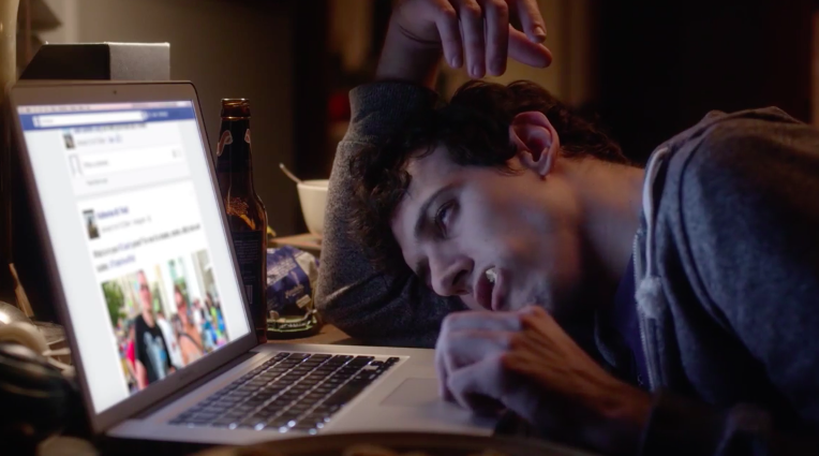
9. Šťouchanice
Milujete tenhle facebookový ekvivalent prozvánění. Když se nad tím ale zamyslíte, jaký máte důvod k tomu zběsile šťouchat do lidí, kterých byste se normálně nedotkli ani pohrabáčem?
10. Denní rutina
„Právě jsem se probudil." „Právě jsem posnídal." „Právě jsem se vyndal." Nepřijde vám divné, že z vašich postů se dá dokonale rekonstruovat vaše denní rutina i tělesné pochody?
11. Stalking
Kolik máte facebookových přátel, které jste si přidali jen proto, abyste mohli šounit jejich profil a fotky? A kolik už jich nemáte, protože jste věděli o každém jejich kroku, novém přírůstku do přátel nebo žblebtech na zdi? Je v pohodě být tak trochu voyeur, ale jestli takhle šmírujete víc lidí než tři, je to trochu úchylka. O bejvalých nemluvě...
12. Ticho po pěšině
Už dvě hodiny žádné nové upozornění? Žádný lajk? To vás dovede tak znervóznit, že pro jistotu voláte vašemu poskytovateli internetu, jestli náhodou nemá nějaké problémy s připojením.
13. Repetice
Na Facebooku trávíte tolik času, že téměř pokaždé, když otevřete pusu, vás kámoši znuděně zpraží: „Jasně, jasně, to jsi přece už psal/a na Facebook!"

JAK Z TOHO VEN ?
Poznali jste se ve čtyřech nebo více bodech? Facebookoví závisláci jako vyšití! Zbavit se téhle závislosti je ale podstatně méně náročné než přečíst podmínky užívání Facebooku. Zkuste se pro jednou prostě odpojit. A začít mluvit s lidmi. Říkat opravdová slova opravdovým lidem, víte co... Abstinenční příznaky budou sice kruté, ale brzy zjistíte, že se dá žít i offline.
Teď nie si na Facebooku, ako by si ani nežil, no nie? Nie celkom! Facebook sa stal tak veľkou súčasťou našich životov, že si bez neho nevieme predstaviť bežný deň. Na tento fenomén sa zamerali aj vedci z Nórska, ktorým sa podarilo identifikovať až šesť rôznych výstražných znamení, ktoré veštia závislosť na najväčšej sociálnej sieti.
Medzi nimi sa napríklad nachádza myslenie na Facebook, nepokojnosť keď si ho neviete skontrolovať a v neposlednom rade jeho nadmerné používanie, ktoré môže ovplyvniť vašu prácu, alebo štúdium. Spoznávate v týchto príznakoch seba, alebo niekoho koho poznáte?
Podľa štúdie z roku 2012 sa môže výrazne spomaliť váš osobný rast a emočné zotavenie po tom, ako vášho ex partnera budete vidieť v rôznych situáciách na Facebooku.
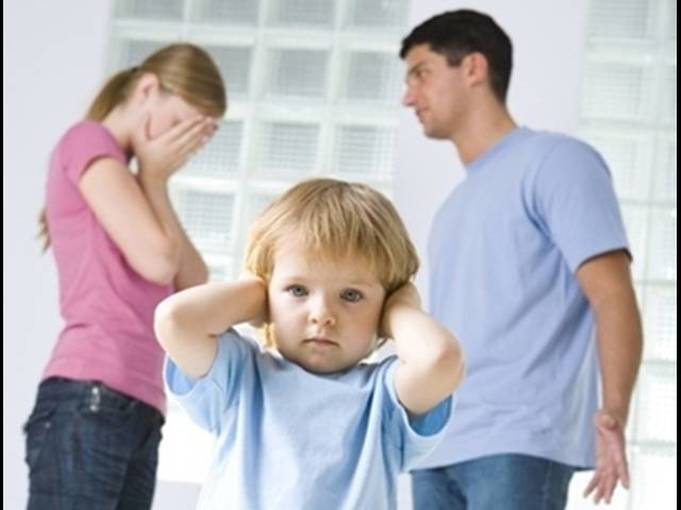
1 z 3 rozvodov má na svedomí Facebook
V roku 2011 bola až jedna tretina rozvodov v USA a UK podložená jedným slovom. Facebook. Počet rozvodov, ktorých dôvod je identický je na prudkom vzostupe. Neblahé účinky nadmerného používania Facebooku sa však netýkajú len čerstvo rozídených, alebo rozvedených. Podľa vedcov zo švédskej University of Gothenburg vedie nadmerné používanie Facebooku k nespokojnosti s vlastným životom a celkovému úpadku dobrej nálady. Ak len bezcieľne scrollujete všetkými príspevkami, zvyšuje to osamelosť a izoláciu.
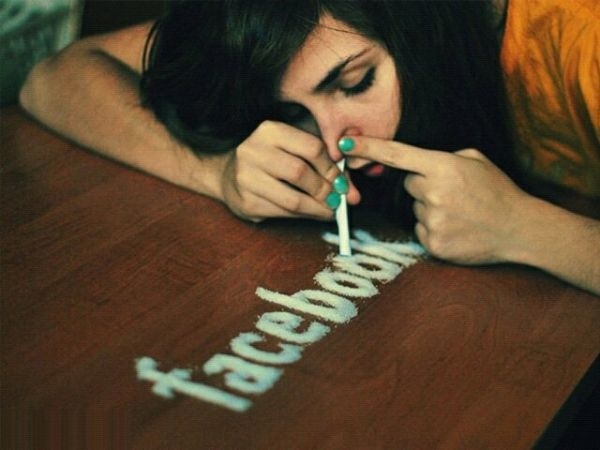
Prečo teda používame Facebook, keď je pre nás tak škodlivý?
Dobrá otázka! Vedci z University of Chicago zistili, že jeho používanie môže byť ešte viac závislé, než fajčenie. Fajčenie!
Bežný používateľ Facebooku na ňom strávi až 75 minút svojho času – každý jeden deň. V priemere je to tak 450 hodín každý rok, alebo takmer 19 dní. Niekto samozrejme na Facebooku strávi toho času viac, niekto zas menej.
Prečo teda používame Facebook, keď je pre nás tak škodlivý?
Dobrá otázka! Vedci z University of Chicago zistili, že jeho používanie môže byť ešte viac závislé, než fajčenie. Fajčenie!
Bežný používateľ Facebooku na ňom strávi až 75 minút svojho času – každý jeden deň. V priemere je to tak 450 hodín každý rok, alebo takmer 19 dní. Niekto samozrejme na Facebooku strávi toho času viac, niekto zas menej.
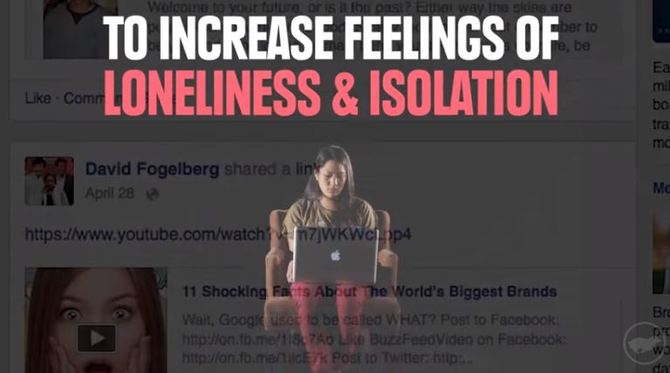
Ako ste na tom vy? Našli ste sa v tomto článku aspoň sčasti?
Podle psychologa Jaroslava Vacka z téže kliniky by se snad mohlo o závislosti mluvit, pokud využívání sociálních sítí už vážněji zasahuje do běžného fungování. Člověk přichází o zájmy, důležité vztahy, někdy i o práci. Hranice rizika je mezi čtyřmi až osmi hodinami denně, do toho nespadá čas strávený na internetu prací a studiem. "Problém nastává, když virtuální kontakty vyplní člověku i volný čas, rizikové je to pro děti, dospívající a lidi, kteří zrovna prožívají těžké životní období," uvedl.
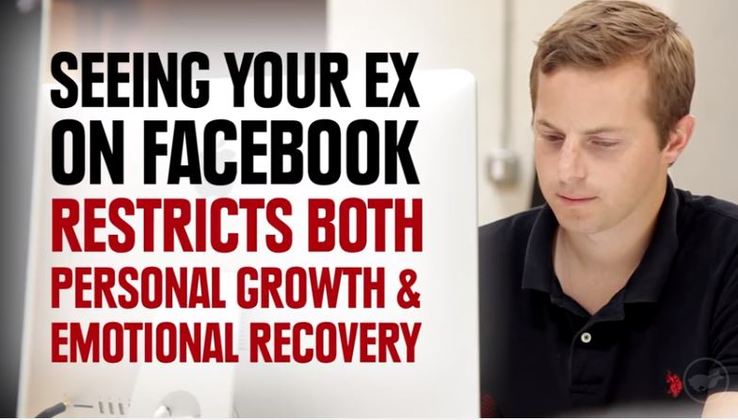
K virtuálním světu se podle Miovského častěji uchylují lidé zvýšeně úzkostní a trpící sociální fobií, mají problém s komunikací či se vztahy.
Facebook jim umožní mít tisíce "přátel", se kterými se sice nikdy nesetkají, ale svěří jim i skryté myšlenky a hledají u nich oporu.
Jak toto očekávání může být mylné, potvrzuje případ třináctileté dívky, která před týdnem skočila v Praze pod vlak. Na Facebooku nechala vzkaz, nikdo z jejích "přátel" z něj nepoznal, že volá o pomoc, a tak jí nikdo nepomohl.
Projev jiných problémů
Závislost na sociálních sítích je projevem jiného problému. Člověk se uchyluje do virtuálního světa proto, že v tom reálném není spokojen. Terapie se proto musí soustředit na řešení původního problému, ne jen na vysedávání u počítače. Pomohou psychologové, psychiatři a adiktologové.
Testem na www.poradna.adiktologie.cz si lidé mohou ověřit, zda jsou touto závislostí ohroženi. Riziko je vysoké, pokud se připojují k internetu hned po probuzení, bez internetu jsou podráždění a omezují kvůli surfování po internetu jiné své aktivity.
Facebook jim umožní mít tisíce "přátel", se kterými se sice nikdy nesetkají, ale svěří jim i skryté myšlenky a hledají u nich oporu.
Jak toto očekávání může být mylné, potvrzuje případ třináctileté dívky, která před týdnem skočila v Praze pod vlak. Na Facebooku nechala vzkaz, nikdo z jejích "přátel" z něj nepoznal, že volá o pomoc, a tak jí nikdo nepomohl.
Projev jiných problémů
Závislost na sociálních sítích je projevem jiného problému. Člověk se uchyluje do virtuálního světa proto, že v tom reálném není spokojen. Terapie se proto musí soustředit na řešení původního problému, ne jen na vysedávání u počítače. Pomohou psychologové, psychiatři a adiktologové.
Testem na www.poradna.adiktologie.cz si lidé mohou ověřit, zda jsou touto závislostí ohroženi. Riziko je vysoké, pokud se připojují k internetu hned po probuzení, bez internetu jsou podráždění a omezují kvůli surfování po internetu jiné své aktivity.

Facebooku dvacetkrát za den a má sebevražedné myšlenky,
Zahraniční testy vidí jako rizikové, když člověk kontroluje svůj profil na Facebooku dvacetkrát za den a má sebevražedné myšlenky, pokud nikdo během 12 hodin neokomentuje jeho příspěvek na blogu. Varující je, když má na sociálních sítích víc kamarádů než těch reálných a ráno se zaloguje na Faceboook dříve, než si vyčistí zuby.
Nejlepší je zbavit se počítače
Jak přemoci závislost na internetu radí psychiatr Karel Nešpor z bohnické nemocnice. Nejlepší podle něj je počítače se zbavit a najít si zaměstnání bez počítačů, což ale dokáže nebo může reálně málokdo. Je tedy dobré udělat si alespoň seznam nepříjemností kvůli internetu a dát ho k počítači. Člověk tak má stále na očích připomínku, že kvůli času na sociálních sítích se mu zhoršily vztahy, bolí ho oči, nemůže spát.
Důležité také je naučit se rozpoznat tzv. spouštěče a vyhýbat se jim - mohou to být internetové hry, nakupování, porno či tlachání. Nešpor radí pracovat bez připojení k internetu, po skončení práce vypnout počítač. Doporučuje naordinovat si "počítačový půst" na pár hodin, nebo i na celý týden, cvičit, vyhnout se alkoholu a drogám, které sebeovládání zhoršují.
Zdroj: http://www.denik.cz/z_domova/na-socialnich-sitich-jsou-zavisle-tisice-cechu-20140202.html
PODOBNÉ ČLÁNKY:
https://www.youtube.com/watch?v=N8ewMAU79Y4
http://www.businessinsider.com/10-reasons-to-delete-your-facebook-account-2010-5
https://www.abine.com/blog/2013/stop-the-nsa-from-tracking-you/
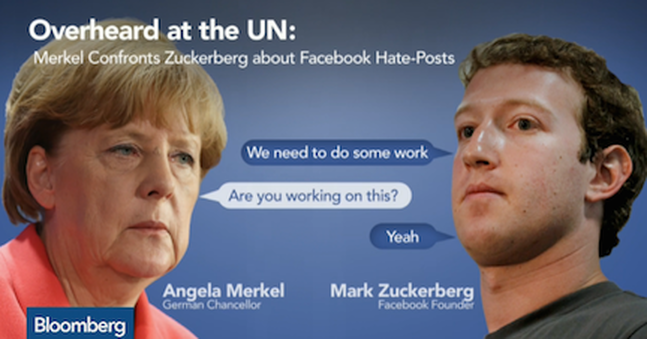
Facebook is the devil.
So I’d be wary of anything the devil does.
7 Facts That'll Make You Delete Your Facebook
researches in norway have identified six warning signs for facebook addiction.
they include thinking about facebbok.
becoming rastless if you're unable to check it ...
and using it so much
that it negatively impact yuor job for or studies
sound like anoyne you know ?
According to a 2012 study
seeing your ex on facebook. restricts both personal growth & emotioinal recovery
in 2011 1/3 of divorce papers in the U.S. & UK CITED facebook, and its influense is on the rise
the more times users spend of facebbok the more likely they are to feel unhappy with their own lives
and passively scrolling through you newsfeed is proven
the average facebooker uses the site 75 minutes. EVERY. SINGLE. DAY.
that's 450 hours a year
quit wasting your time
-------------
I have mixed feelings about Facebook. On one hand, it’s a great way to reconnect and stay connected with friends, family and acquaintances. On the other hand, it is time-consuming and cumbersome. I mean “Pieces of Flair”? Please.
But of more concern are privacy issues. Four senators have sent Facebook a letter of “concern”, warning the social network that federal regulators would likely investigate the company. Democratic Senators Charles Schumer, Michael Bennett, Al Franken and Mark Begich – the latter a member of the communications subcommittee – sent the six-year-old social network a letter expressing concern over the new privacy rollback. The senators called on the company to make this privacy rollback “opt-in” rather than “opt-out,” since the latter process is “long and complicated.”
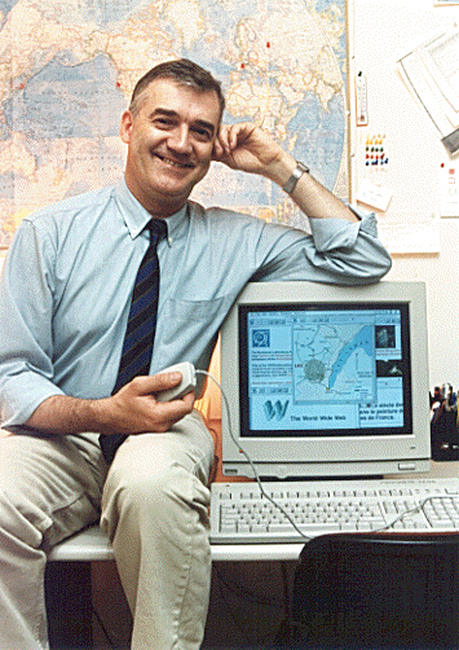
Co-inventor of the World Wide Web speaks out
Robert Cailliau, who co-developed the World Wide Web 20 years ago, recently commented in a video why he isn’t on Facebook:
“I can get in, but I can’t get out.
I don’t know what happens to my data.”
Check out what he has to say about the iPod browser, and Internet Explorer. You might be surprised to hear what he would have done differently.
On restoring your FB privacy
As soon as I read this, I headed to my Facebook page and made some changes. You probably will too.
Social networking vs. cyber militias
Caution! Advances in digital technology are giving authoritarian regimes new ways of monitoring and silencing dissent. Radio Free Europe and Radio Liberty President Jeffrey Gedmin says authoritarian regimes like Iran have used a range of technologies to block, monitor and infiltrate social media.
Hugo Chavez begins tweeting, wants to rule it
“The Devil” has discovered Twitter and is determined to rule it the way he rules his domain. Completely. Et tu, Evo and Fidel?
Fill ‘er up
With the headlines focused on last week’s tragic explosion of an oil rig in the Gulf of Mexico, speculation is rising over whether prices at the gas pumps will increase.
Here’s a website that gives you on-the-spot info for gas prices in your area throughout the United States and Canada. Simply type in your zip code and you’ll be given a list of gas prices at gas stations in your immediate vicinity. As of this writing, prices at the pump in my area start at $2.79 a gallon for regular.
***
Mobile spy program watches your Blackberry usage
U.S. software firm Retina-X Studios has released a more vigilant version of its Mobile Spy program that captures every email and picture from BlackBerry smart phones. An earlier version kept track of text messaging and telephone calls, providing online access of data to employers, parents or whoever else was paying for smart phone accounts.
The new Mobile Spy 4.0 software now provides smart phone contacts, calendar events, memos and records of which cell towers a mobile phone was within range of.
image: http://www.wnd.com/images/100503twitterseparation.jpg
Twitter’s five degrees of separation
“Six degrees of separation” is the philosophy that suggests everyone is at most six steps away from any other person in terms of relationships. Social media monitoring and analytics startup Sysomos has released a report that looked at 5.2 billion Twitter friendships to see how connected they are with each other.
Sysomos discovered that Twitter is mostly a network with only five degrees of separation, with nearly everyone on Twitter just five steps (or friends, i.e. people you follow) away from each other. Many Twitter users – 37 percent – have only four degrees of separation from each other.
Twitter still has plenty of room to grow
If you’re like my friend Marylou, you know about Twitter, but like her, you don’t use it because you don’t see the need. In February 2008 only 5 percent of Americans knew about the microblogger, compared to 87 percent in February 2010, according to an Edison Research report.
Only 7 percent, or about 17 million people, actually use Twitter. Twitter Inc. says 40 percent of its 105 million registered members are from the United States.
High school dropout sells blog for millions
He dropped out of high school in his sophomore year to run a company he began out of a sense of curiosity about mobile phones still on the drawing board. Read the amazing story of a now-23 year old who preferred the anonymity of the name “Boy Genius” and who just sold his company in a multi-million dollar deal. It’s a sterling example of free enterprise and creative capitalism.
Blogging on commission
Though a New Jersey judge last week ruled that bloggers are not journalists, you couldn’t convince advertisers of that. Many blogs attract tens of thousands of readers in a single day, reporting sourced news that isn’t covered in the so-called mainstream media.
“Blogs have something special to offer both readers and advertisers: an oasis of human quality, a strong sense of connection with and among readers. For advertisers looking to elevate their brand and really connect with influential readers – as opposed to just getting clicks from random consumers – there’s nothing better,” according to Blogads, which has launched a new feature to pay bloggers who bring advertisers to other bloggers in their niche or locale.
Two much time on there hands: Tweetiquette
Caps cops, grammar guards, verb vigilantes and spell spotters are on the lookout for type violators and Twitter transgressions. ALL CAPPERs will be prosecuted.
GetGlue before you view
GetGlue offers film, book and music fans a sticky way to deliver product info. How? By aggregating web pages on a specific topic.
You start by building a profile and getting personalized suggestions for your favorites. The more you use it, the better the suggestions become. Every week GetGlue filters new releases, showing you new items you’ll enjoy most. You can also explore what your friends have liked and read their reviews. It’s hot and sticky.
World’s most wired airports
Spending time waiting to board your flight is so much more productive when you can be on your computer, checking email and surfing the web. Wireless Internet has become a common airport amenity. But which airports’ passengers actually use the most Wi-Fi? To find out, Forbes asked Wi-Fi service providers Boingo and iPass to identify the airports that send them the most traffic. See the top 20 wired airports around the world.
Technology: the new parental survival tool
It’s the modern day version of ig-pay atin-lay. Today’s parents are sharing info they don’t want little ears to hear through text message and email.
“Parents who want a way to talk so little ears can’t hear have moved beyond s-p-e-l-l-i-n-g in favor of a new kid-proof system: the text message,” Associated Press reports. “E-mail, text and instant messaging have become the go-to technology for parents on family outings or at the end of a long day, when mom’s chilling on the couch in front of the TV and dad’s reading in the bedroom more than a whisper away.”
image: http://www.wnd.com/images/100503googlestreet.jpg
Google Street has your number
Google Street View is logging Wi-Fi networks, and Media Access Control (Mac) addresses.
Why are they doing this? That’s what some Germans want to know.
Google’s roving Street View spycam blurs your face, but it’s got your number. The Street View service is under fire in Germany for scanning private WLAN networks, and recording users’ unique Mac addresses, as the car trundles along. Germany’s Federal Commissioner for Data Protection Peter Schaar says he’s “horrified” by the discovery. Here’s why.
Google’s Street View has added another feature that makes it easier for you to find basic info about a particular establishment. You’ll now see an icon overlaid on an image of a company building. Click the icon and a dialog box will open, displaying the establishment’s name, address, phone number and website.
If the company has a Google Place page, you’ll find additional info, like hours, deals and anything else the business owner has added to the company’s profile.
Mapping the great indoors
A map that lays out the inside of a favorite mall? Just like we’ve become accustomed to using a GPS devices to tell us where we are, and where we’re heading, software developers are working on programs that will map out the interiors of buildings like shopping malls, convention centers, airports, etc. It’s not there yet, but it’s just a matter of time.
How bad is CNN.com? WTFCNN.com tells you
Have you ever visited CNN.com to catch up on the day’s news when instead you’re greeted by non-news “fluff”? Irritating and annoying. Especially when an oil rig is spewing oil, illegal aliens are rioting in Arizona and Iran is threatening to nuke the world.
A new site, WTF CNN?, compliments of Breadpig, shows you exactly what world news you’re missing by clicking on CNN.
Here’s how it works: CNN.com is displayed at the top of the page, and under it, you get a choice of seeing front pages from ABC (Australia), Al-Jazeera (Qatar), BBC (U.K.), China Daily (China), Deutsche Welle (Germany), EuroNews (Europe), France 24 (France), or Reuters (U.K.). Aaaah, that’s better.
The alternative site was developed by Chromakode.
Don’t leave home without it
As more of us go to the tea parties and town-hall meetings, this is one of the most valuable tools we have to keep them honest. And it’s just over $100. Grab and go. You never know who you’ll capture forever in pixels.
Time keeps on ticking into the future
This clocks all kinds of valuable and interesting milestones.
Turning back the clock
1945 – V-E Day, Germany signs surrender and Churchill announces, crowds rejoice
1954 – In less than four minutes, Roger Bannister runs the mile
1961 – Alan Shepard, first American in space
1978 – “Son of Sam” pleads guilty
1979 – 10 Downing gets first woman PM, Margaret Thatcher
image: http://www.wnd.com/images/100308princess.jpg
Now playing at the Princess Theater, Urbana, Ill.
Congratulations to WorldNetDaily reader Teresa Daugherty, the first to correctly guess actor Al Pacino as Lt. Col. Frank Slade in “Scent of a Woman”, the 1992 Oscar winning movie about Col. Slade, who has a very special plan for the weekend. It involves travel, women, good food, fine wine, the tango, chauffeured limousines and a loaded .45. And he’s bringing Charlie along for the ride.
The movie quote was, “There was a time I could see. And I have seen. Boys like these, younger than these, their arms torn out, their legs ripped off. But there isn’t nothin’ like the sight of an amputated spirit. There is no prosthetic for that.”
To watch the film’s most powerful scene, click here (Language alert!).
This week’s trivia quote: “Forgiveness is between them and God. It’s my job to arrange the meeting.”
Name the movie, the actor and the character. Send your answer to me at the email address below. Good luck!
Read more at - http://www.wnd.com/2010/05/149121/#CyMJSLLFKVibH7k0.99
FACEBOOK ARMA DE SATANAS PARA DESTRUIR CRISTIANOS
facebook arma de satanas para destruir cristianos parte
Read more at - https://www.youtube.com/watch?v=b0nzM_eTnr8
https://www.youtube.com/watch?v=b0nzM_eTnr8&list=PLXAeQ96hHlWYAQpGTDM57c9R9RvAUybvA
Facebook is the devil.
So I’d be wary of anything the devil does.
https://www.youtube.com/watch?v=vmre4SeWunk
CLOSE YOUR FACEBOOK ACCOUNT NOW!!!!!
DELETE YOUR FACEBOOK AND BE FREE!
Clearly a company that started off in a college dorm and became a multi-billion dollar company in the span of ten years must be in league with the devil.
If not the devil himself.
How else would you explain Facebook’s meteoric rise to the top of the social media food chain?
Sure, they’ve got millions upon millions of users.
Sure, they extract a pound of flesh from advertisers to hawk their wares to Facebook’s captive audience.
Sure, their IPO netted them a gazillion dollars.
Why the acquisition of WhatsApp is bad news. Facebook is the devil.
Facebook is the devil.
So I’d be wary of anything the devil does.
Clearly a company that started off in a college dorm and became a multi-billion dollar company in the span of ten years must be in league with the devil.
If not the devil himself.
How else would you explain Facebook’s meteoric rise to the top of the social media food chain?
Sure, they’ve got millions upon millions of users.
Sure, they extract a pound of flesh from advertisers to hawk their wares to Facebook’s captive audience.
Sure, their IPO netted them a gazillion dollars.
But damn!
Enough is enough!
If you’ve been paying attention, startups on Facebook’s roster are batting zero.
Case in point.
Let’s look at the giant’s appetite over the past decade, shall we?
Connect U – shut down
Friend.ly – shut down
Gowala – shut down
Lightbox.com – shut down
Face.com – defunct
Threadsy – shut down
Suffice it to say, not all acquired companies fare well under Facebook’s oppressive thumb.
And these are just the more public purchases that Facebook has made.
There are scores of others too obscure to mention, scattered across Facebook’s post-acquisition landscape.
Facebook claims that WhatsApp will continue to operate independently, but their track record doesn’t paint a convincing picture of post-acquisition bliss.
And while, Instagram, Branch and Friend Feed are still thriving on-going concerns, who can say when they will cease to please the devil and have their heads lopped off?
Facebook is a fickle beast, no?
I’m just saying.
I use WhatsApp.
I like WhatsApp.
Unlike most of Facebook’s crap, there are no distracting ads or mindless drivel mucking it up.
So you’ll forgive me if I think that Facebook’s acquisition to WhatsApp can’t possibly bode well for me and countless other WhatsApp users.
Sure, the creators of WhatsApp are making out like bandits, but who gives a fuck about them?
My misgivings are not without merit.
It’s happened before.
It can happen again.
I predict that Facebook is either going to scuttle WhatsApp completely or turn it into some ad-laden behemoth that I won’t want to fuck with.
With a track record like their’s, the devil Facebook is not to be trusted.
I’ve about had it with Facebook and all their laws and regulations and if you are anything like me then you probably feel the same way.
After discovering that Facebook can access any information on your computer simply by joining and that they can share your information with any government agency that requests it; they are now adding to that the fact that they can limit what people can and can’t say.
At the United Nations Meeting over this past weekend, Facebook’s Mark Zuckerberg was caught live on an open mic making a deal with German Chancellor, Angela Merkel and you wont believe what they conjured up! Here is the breaking report…
https://www.youtube.com/watch?v=81fSCd3onE8
Facebook is not to be trusted.
Facebook and How Satan is Using it to EAT YOUR SOUL
Yes facebook is like the devil…I am afraid of how our children are going to grow up using it. It breaks down social communication. It is very very sad.
If you decide to go this route, you may be making a pact with the devil.
0 ways Facebook is actually the devilRead This First (added later)
This post was never intended to be a justification of Facebook or of the arbitrary experimentation that is done at all web service companies. The underlying theme was to ask the question why are the people who are making the most noise making that noise now? Other experiments and questionable practices from inside Google, Amazon, and Facebook have been made public before and the level of furor was nothing like this. This is a small fraction of the news that the recent NSA revelations has gotten, but it is still pretty close. That is something that many people have basically known was going on for years and no one said anything about it until someone from the inside brought out proof. Maybe that is metaphorically why this is easier to hold on to and point at, but what I say below is more of a question of why the people who claim to care the most about this have not been louder. Maybe they have been trying to and finally people are listening. Either way, from my point of view, this public discourse on the ethics of experimentation seems new, and I am just trying to say why now? I do understand why people are upset, I don't think this particular test was unethical because of the minimal risk of real harm being to done to participants which is generally accepted by university internal review boards as one case where consent is unnecessary. This post was never intended to say that something is okay (or not okay), it was only intended to put the words attributed to me within the context that I said them which I guess is even less clear than I thought.
On the title:Apparently it is non-obvious, but the title of this post is a jab at the way "news" is presented nowadays.
Disclaimer:Anything contained within this post that resembles something that may or may not have actually happened at Facebook while I worked there is purely coincidental and does not constitute a breach of a non-disclosure agreement which may or may not exist between myself and said company.
The Short VersionA reporter reached out to me about this experiment that was the subject of a recent paper published by some members of the Data Science team at Facebook. I don't know how he found me originally, but we talked a few weeks prior about Facebook in general which did not end up in the newspaper in any way, so I did not think much of talking to him again. He told me he was just looking for background information on a story about the data science team in general about how they work and some things related to how this experiment was run. So I said that sounds reasonable and we talked for at least 45 minutes about testing and experimentation, which led to a bunch of other stuff. If you know me or have talked to me you know how I tend to meander around when talking about something. I thought I was even overly positive about the work being done, talking about how everyone is trying really hard to make the product better through understanding.
Because of all the talk about this experiment, I thought it was pretty reasonable to write something more general about the data science team independent of just this experiment. He focused a little bit on whether there was a review board for running tests and I honestly said no, not back in 2012, maybe now, but I doubt it, I didn't think much of that, I tried to clarify that I wasn't really on the data science team, that I worked on SI, so my experience with running tests was quite different as they were never intended for publication.
So anyway, he told me their editors don't allow them to show things before they are published, but he told me he could tell me the overall theme of what he was writing, but he refused to do it via email, and I eventually felt like I expressed that if I cant see it then I don't think he should be quoting me, which led to him saying well it is going to be published anyway and he thinks he accurately captured what I had told him.
The Real ContextAll of the quotes from me are out of context, although they are pretty much actual quotes. Some of them were twisted around and basically pieced together from two different sentences to sound like one, but all of them got the tone and nuance completely opposite of what I actually said. I talked to the guy who wrote that story for more than half an hour from which he pulled that handful of quotes. He definitely spun the words I technically did say to further his ends of painting Facebook in a negative light. I am going to try and speak here to how I actually feel about things and if you recognize some quotes you will see the context from which they came.
While I was at Facebook, there was no institutional review board that scrutinized the decision to run an experiment for internal purposes. Once someone had a result that they decided they wanted to submit for publication to a journal, there definitely was a back and forth with PR and legal over what could be published. If you want to run a test to see if people will click on a green button instead of a blue button you don't need approval. In the same way, if you want to test a new ad targeting system to see if people click on more ads and revenue goes up, you don't need institutional approval. Further, if you want to see how people react to changes in certain systems like the content in news feed, you don't need approval for that experiment, even if it is just to help inform an internal ranking system. Nonetheless, people aren't just running experiments willy-nilly. There are only a small subset of people on the data science team who have social science research as part of their primary job duties. Everyone else would not run an experiment like the one people are talking about because it would not help the product they are working on. Those who do run such experiments, have very high ethical standards and experience running experiments both inside and outside academia. They are trying to make Facebook a better product for over a billion people, and the way they know how to do that is to understand human behaviour and the human-computer interaction. Experiments are run on every user at some point in their tenure on the site. Whether that is seeing different size ad copy, or different marketing messages, or different call to action buttons, or having their feeds generated by different ranking algorithms, etc. The fundamental purpose of most people at Facebook working on data is to influence and alter people's moods and behaviour. They are doing it all the time to make you like stories more, to click on more ads, to spend more time on the site. This is just how a website works, everyone does this and everyone knows that everyone does this, I don't see why people are all up in arms over this thing all of a sudden.
I personally never collaborated with outside researchers while they were in academics, I worked with a couple while they were Facebook employees on sabbatical, so the normal standards of data access with outside academics did not apply. The decision to work with an outside researcher does go through some scrutiny but it is not centralized in anyway, for instance any team that knows someone in academics that could help solve a problem that Facebook has or better understand something can choose to reach out albeit with a friendly heads up to the academic partnership team, legal, and PR. No user identifiable information is ever revealed to external researchers, but there is a decent amount of anonymized data that is shared for the express purpose of helping researchers understand human behaviour. For example, this event is an example of an event that has happened several times which is basically a joint effort between internal and external researchers to understand how Facebook and social networks in general can be more compassionate. I am a bit taken aback by the fact that the most recent paper has gotten as much press as it has, when the work done as part of the compassion research days has never been mentioned. Some of these papers are based on experiments that influence people's behavior in similar ways, but I guess they do not have as much cachet for whatever reason.
There has always been a lot of ethical discussions around experiments being run. From the simplistic, i.e. will this be disruptive in a way that would simply annoy users, to the more complex, i.e. is the perceived benefit from the understanding that we will get from this test worth the potential negative effect on users as well as any potential negative PR from a misunderstanding of the experiment. Every data scientist at Facebook that I have ever interacted with has been deeply passionate about making the lives of people using Facebook better, but with the pragmatic understanding that sometimes you need to hurt the experience for a small number of users to help make things better for 1+ billion others. That being said, all of this hubbub over 700k users like it is a large number of people is a bit strange coming from the inside where that is a very tiny fraction of the user base (less than 0.1%), and even that number is likely inflated to include a control group. It truly is easy to get desensitized to the fact that those are nearly 1M real people interacting with the site, and it is something that people constantly are trying to remind everyone of when working on the product. There is a lot of work to try to increase the empathy towards the people using Facebook internally, so the backlash against Facebook is always doubly painful because these really are good people trying to make things better. The PR team maybe does not get in front of these issues enough, but the only thing I see changing from this is not whether similar experiments will be run, but rather will they be published. Similar experiments have been and will continue to be run, but you probably just won't see a paper about it anymore. That is a real shame because Facebook and the data it has has been able to advance social psychology by quantum leaps over the past decade and this furor will undoubtedly slow that advance.
I don't mind being quoted or not, in fact I would probably prefer not to be as I really don't want to be putting my name out there attached to something that could be misconstrued by my friends who still work at Facebook as me trying to go behind their backs and get publicity out of something bad happening to them. I quit Facebook in April of this year for a variety of reasons, but I still think they are doing good things in the world, so above all I don't want to come across as bad mouthing them. That being said, the plain truth is that the experiment that generated this paper is over 2 years old, so any discussion on either side about a review board is missing the point. Facebook as a corporation has to be weak in what they say, but this study was the right thing to do, it was an interesting behavioural question, the experimental design was solid, and the results were pretty clear and interesting. Furthermore, any experiments are covered by the TOS and not only that, advertising is equivalent to trying to alter your mood and behaviour. Every ad based company (Facebook, Google, Yahoo, Twitter, etc.) exists to alter how you perceive the world. The fact that a human stood up and said that is what they are doing is the only thing that is different here. So I have no idea why people are talking about this in the first place.
Further thoughtsI understand reading this how I was really an idiot saying anything like this to a reporter. It is pretty clear that anything sounds bad out of context, but I really said some bad things out of context. I did give an example to the reporter of something that I worked on as an example of how people did care about ethics even in situations where no one would ever know about the test. This was a further mistake as it may or may not have violated some agreement that I may or may not have about what I can say about what went on internally. The part that annoys me the most about the article as it is written is how ridiculous I sound. Everyone I know who actually knows me who reached out to me, basically said the same thing, it sounds like you got duped. It is clear if you know me how I was represented is not accurate, but most people don't know me, so that sucks.
Consider reading the following articles for more reasonable opinions about this whole mess:
http://www.wnd.com/2010/05/149121/
Sociální síť Facebook využila bezmála 700 tisíc uživatelů k rozsáhlému psychologickému experimentu, aniž by o tom někdo z nich věděl a dal k tomu souhlas. Aby Facebook zjistil, jak vybraní uživatelé reagují na pozitivní a negativní informace na sociálních sítích, filtroval totiž obsah tzv. newsfeedu. Některým lidem tak zobrazoval více pozitivních, jiným naopak více negativních příspěvků,” píše zpravodajský server ihned.
Tato aktivita Facebooku rozhořčila britského labouristického poslance Jima Sheridana, který požaduje prošetření celého případu. Žádá, aby legislativa podobné věci upravovala. Co mě ale zaskočilo nejvíc, je Sheridanova obava z toho, k čemu se Facebook odhodlá příště. „Facebook manipuluje emoce lidí. Bojím se, aby nezačal manipulovat i jejich politické smýšlení,“ uvedl Sheridan.
Dělá si snad srandu? To říká politik a ještě k tomu labourista? Politici manipulují politické smýšlení lidí prostřednictvím veřejných škol a veřejnoprávních médií, nad nimiž, ať nám kdo chce, co chce tvrdí o jejich nezávislosti, mají kontrolu. Politici stojí za jednostrannými marketingovými kampaněmi, které mají zmanipulovat občany, aby hlasovali v referendu přesně podle přání politických elit. Politici k této manipulaci využívají veřejných peněz. Ve chvíli, kdy se objeví nepatrný náznak, že nástroj k podobné manipulaci má i soukromá společnost, která by vše financovala z vlastních zdrojů, vyskakuje politik jako čertík z krabičky a volá po zákazech. Neskutečné
